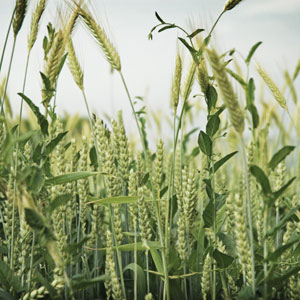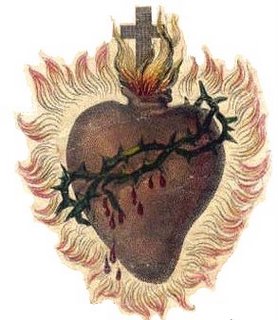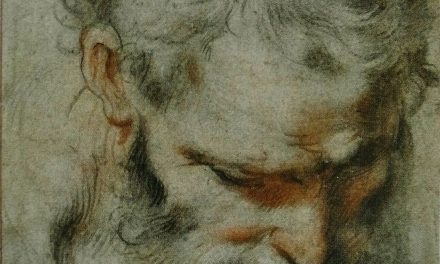Sixteenth Sunday in Ordinary Time
Wis 12:13, 16-19; Ps 86:5-6, 9-10, 15-16; Rom 8:26-27; Mt 13:24-43
In a course I teach on theology and criminal justice, my students examine various ways of approaching the familiar-though-inevitably-elusive concept of justice. As we consider the proper response for a range of misdeeds, a retributive approach usually comes to these young men and women as second nature. Justice requires that one gets what one deserves. What is mercy then? From this view, mercy appears to be the suspension of justice. If mercy is holding back from the punishment that one deserves, then mercy and justice are in direct conflict. It is a compelling perspective. But it is also problematic.
One problem emerges when we apply these understandings of justice and mercy to God. From this view, it appears that God’s mercy toward human sinfulness is a failure to do justice to human sinfulness. In other words, true justice puts heaven a bit out of reach for all of us. God would have to choose whether to be just or merciful and couldn’t be both simultaneously. And thus salvation seems to involve taking our chances with a supremely powerful Dr. Jekyll and Mr. Hyde.
Yet, we have a sense that God’s justice must be compatible with God’s mercy. Indeed, in this Sunday’s First Reading, we hear a reference to this:
For your might is the source of justice; your mastery over all things makes you lenient to all. (Wis 12:16)
Many others have claimed this compatibility over the centuries, including even St. Anselm. Despite misunderstandings of his Cur Deus Homo [How God Became Man], justice and mercy are in harmony with one another in St. Anselm’s theory of satisfaction. The sentiment is echoed in an earlier work of Anselm’s in which he offers the following prayer:
Certainly, if thou art merciful because thou art supremely good, and supremely good because thou art supremely just, then it follows that thou art merciful because thou are supremely just (Proslogion, Ch. 9).
How can we arrive at this place of accord between justice and mercy? In short, by re-examining basic terms. The Hebrew Bible largely uses the language of justice to speak of a saving, intervening power that works on behalf of the vulnerable and oppressed. Justice is done to widows and orphans. Justice works to restore the relationships of the community to God’s original intentions. A merciful, saving intervention is thus at the same time a work of justice.
With all this in mind, consider the parable of the wheat and weeds from Sunday’s Gospel. A slave asks the master whether he should pull up the weeds growing among the wheat, and the master says no for fear that some of the wheat might be destroyed as well. The weeds and wheat are allowed to grow together until harvest time and only then will they be separated and dealt with accordingly. Later, Jesus explains that the good seeds are “the children of the kingdom. The weeds are the children of the evil one” (Mt 13:38). Thus, the parable’s message seems to be one of temporary coexistence and tolerance with the consolation that, ultimately, each will get his or her due. There is reason for Matthew to provide such a message; it gives guidance to a Jewish community struggling with the division between those who accept the words of Jesus and those who do not. Patience in the face of eschatological time is a worthy reminder. But we may need to stay vigilant about how such a parable leads us to think of justice and mercy.
One might read the parable and see an all-too-simple view of good guys and bad guys, of innocents and criminals. The bad seem to be given mercy in being allowed to continue and prosper alongside the good. Yet, the tables will one day turn and justice will ultimately prevail, replacing and negating mercy.
The problematic opposition of justice and mercy follows from a confidence in the stark opposition between the righteous and the unrighteous. Despite our tendencies, the parable is not aimed at helping us to definitively self-identify as sinner or saint; the main point, it seems is about a willingness to accept our mixed society in the present.
Indeed, we might also see this parable as an invitation to recognize our own mixed nature and to caution us from confident line-drawing between the good guys and the bad guys.
If justice is getting exactly what we deserve, our inner weeds will spell our destruction, and harvest time is to be feared mightily. But if justice is a saving intervention, then it is both just and merciful to let us grow, weeds and all. Even more, it is both just and merciful to release us from our weeds in the great harvest.
The justice and mercy of God may be compatible after all . . .






Dear Kathryn, Many thanks for your insightful post. I agree that the “God of Justice” vs. “God of Mercy” dichotomy should be challenged. I’m often surprised to hear people speak of the OT God as the former and the NT as the latter without seeming to realize how problematic a claim this is.
Nicely done, Kathryn. This is a really important topic ripe for further exploration. Psalm 85:10 refers to justice and mercy kissing, so ultimately, somehow, these two are not either/or but both/and.